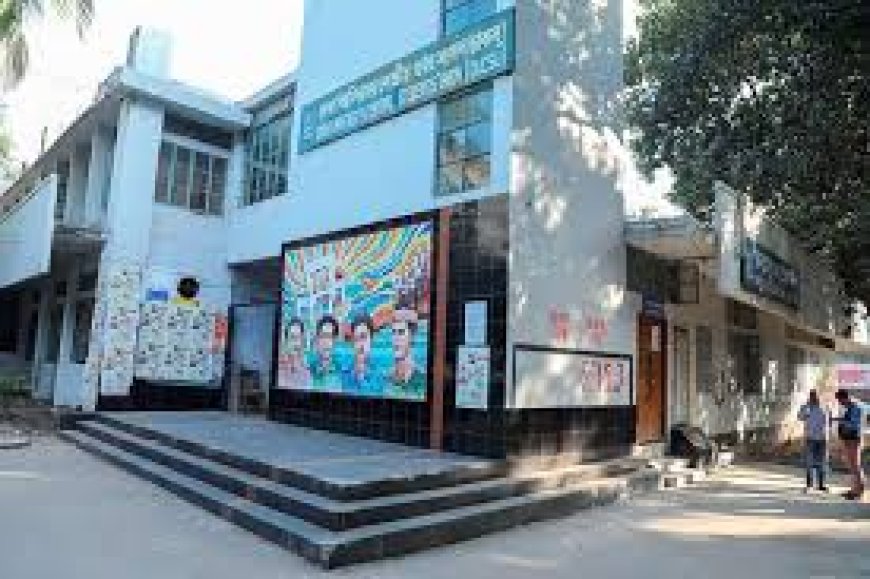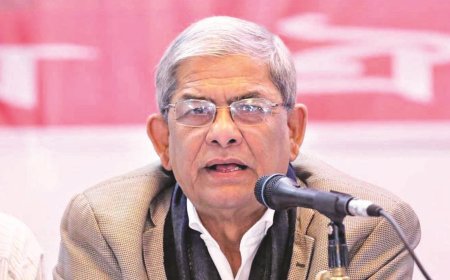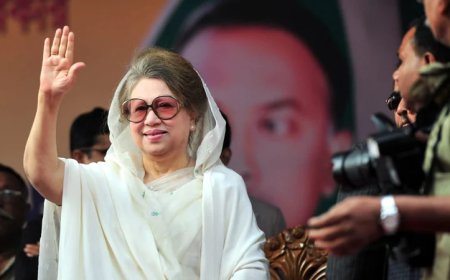Discussion on the Elections of the Dhaka University Central Students' Union (DUCSU)
All student organizations have called for DUCSU elections, but some groups, such as Chhatra Dal, have additionally emphasized the need to reform DUCSU's constitution prior to holding the elections.

Renewed Discussions on DUCSU Elections Amid Calls for Reform
In the wake of the fall of the Awami League government following a student-public uprising, renewed discussions have emerged regarding elections for the Dhaka University Central Students' Union (DUCSU) and Hall Parliament. All student organizations have called for DUCSU elections, but some, including Chhatra Dal, have demanded constitutional reforms before the elections.
Steps Toward Reform
Responding to these demands, the Dhaka University authorities formed a seven-member committee on December 25 to amend the DUCSU constitution. The committee held its first meeting on January 1 and subsequently sent letters to 22 campus organizations on January 2, inviting proposals for constitutional reform by January 8, later extended to January 14.
By January 14, seven organizations, including the Students' Federation and Islami Chhatra Shibir, had submitted proposals. Key suggestions include redistributing power within DUCSU's constitution, ensuring that the Vice-Chancellor (ex-officio DUCSU President) has no executive authority, and granting decision-making powers to elected committee members.
Other proposals focus on institutionalizing DUCSU elections as a regular calendar event, revising the candidate age limit (currently capped at 30), and renaming certain editorial positions. Saifuddin Ahmed, a member of the amendment committee and university proctor, stated that all proposals would be compiled into a report for submission to the Vice-Chancellor.
Chhatra Dal, which had not submitted its proposal by January 14, expressed its intention to do so soon. Its Central General Secretary, Nasir Uddin, reiterated the need for constitutional reform before elections.
Diverging Timelines
Islami Chhatra Shibir's university branch president, SM Farhad, has pushed for DUCSU elections by February, arguing that the constitution could be reformed within January if the administration acts sincerely.
Historical Context and Recent Elections
The last DUCSU elections, held in 2019, were marred by allegations of irregularities. Out of 25 positions, 23 were secured by the ruling Awami League’s affiliate, Chhatra League, while the VP and Social Service Secretary posts were won by independent candidates. Since no elections have occurred since 2019, there is currently no student representation in the university’s senate.
Prior to 2019, the last DUCSU elections were held in 1990. The 28-year gap was primarily attributed to political interference. Student organizations now believe that the post-government shift has created a conducive environment for elections.
Broader Context of Student Politics
Following the fall of the Awami League government on August 5, discussions on banning partisan student politics resurfaced. The university formed a special four-member committee led by retired Justice Md. Abdul Matin to evaluate the nature of student politics on campus. This committee has been consulting with student organizations.
Diverging Agendas
The Anti-Discrimination Student Movement convened a meeting on December 4 with 30 student organizations, where a consensus emerged to hold DUCSU elections by early February. However, key groups like Chhatra Dal and leftist organizations did not participate. Instead, they held a separate meeting to discuss constitutional reforms and agreed on the need for timely elections without specifying a date.
Some leaders alleged that the Anti-Discrimination Student Movement and Chhatra Shibir are attempting to use DUCSU elections to gain leverage in national politics. Both groups denied these claims, asserting that their push for early elections is solely in the interest of students.
Moving Forward
Protests demanding a clear election roadmap were held on campus on January 2 and 13. Former coordinator of the Anti-Discrimination Student Movement, Abu Baker Majumder, expressed optimism that DUCSU and other university student council elections would occur during the interim government’s tenure. He emphasized the need for elections to foster young leadership in the post-regime era.
This renewed focus on DUCSU elections, alongside constitutional reforms, highlights a pivotal moment for student politics at Dhaka University.
What's Your Reaction?




















































































